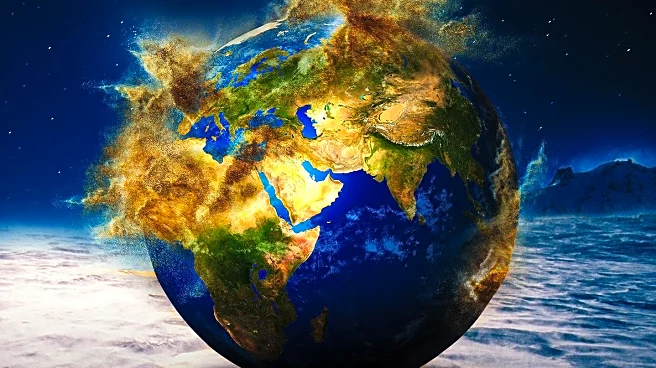What's Happening?
The Guardian discusses the evolving genre of climate fiction, emphasizing the need for positive narratives that inspire change. Historically, climate novels have focused on dystopian themes, highlighting catastrophic environmental impacts and societal collapse. However, there is a growing call for stories that offer hope and envision sustainable futures. Authors are encouraged to explore narratives that depict human synergy with nature and propose solutions to environmental challenges. The article reflects on past works that have shaped the genre, noting the shift from bleak predictions to more optimistic storytelling. This change aims to engage readers in envisioning a healthier relationship with the environment and motivate action towards sustainability.
Why It's Important?
The shift towards positive climate fiction is significant as it can influence public perception and inspire proactive environmental action. By presenting hopeful scenarios, these novels can counteract feelings of fatalism and encourage readers to imagine and work towards sustainable futures. Literature has the power to shape cultural narratives, and by focusing on positive outcomes, authors can contribute to a broader movement towards environmental awareness and change. This approach can also foster a sense of agency among readers, empowering them to participate in ecological preservation and innovation.
Beyond the Headlines
The emphasis on positive climate fiction highlights the role of literature in shaping societal values and priorities. By offering alternative visions of the future, these stories can challenge existing narratives and promote a cultural shift towards sustainability. The genre's evolution reflects broader changes in environmental discourse, where optimism and solution-oriented thinking are increasingly valued. This trend may also influence other forms of media and art, encouraging a holistic approach to addressing climate change.









